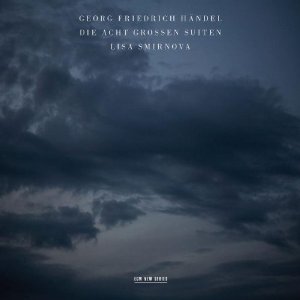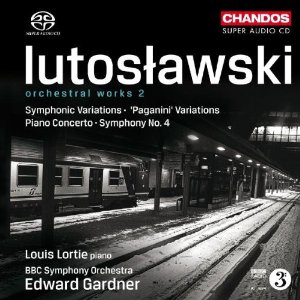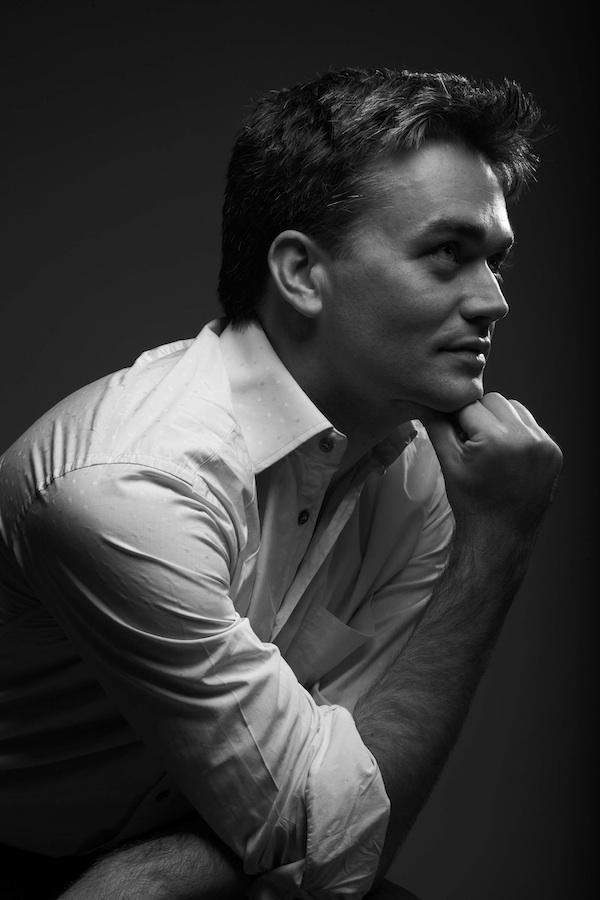
This set slipped out quietly at the end of 2011. The typically muted ECM cover gives no hint of how life-enhancing these two discs are; I felt like getting the fluorescent highlighters out and jazzing up the monochrome sleeve art. Pianist Lisa Smirnova, Moscow-born and now living in Vienna, makes a bold case for these underrated, immensely enjoyable suites. Comparing them with Bach’s keyboard output is inevitable. Both are fabulous, of course, but it’s hard to disagree with Uwe Schweikert’s comments in the sleeve notes, that Handel’s music is more urbane and grounded than Bach’s "speculative introspection". Bach at his most inward-looking and spiritual can make me feel profoundly inadequate and unworthy. Listening to these Handel suites prompted me to open a beer and skip happily around the living room. Plus, they sound fantastic on a modern piano.
It’s all to do with the playing, inevitably. Smirnova’s gift is in lifting the rhythm and clarifying each contrapuntal voice. She also resists the urge to show off – it must be tempting in some of Handel’s faster movements to crank up the tempo and dazzle, but there’s no superficial flashiness on display. There are so many moments which delight here: the stark flourish that opens Suite no 3, or the catchy air (adopted by Grainger in his Handel on the Strand) which closes Suite no 5. The fugue which opens Suite no 4 is as imposing, as technically accomplished as any by Bach. This is another recent release which has transformed my view of Handel. I can’t recommend this too highly, and ECM’s recorded sound approaches perfection.

Witold Lutosławski’s Symphonic Variations were completed in 1938. His earliest surviving orchestral piece, it was thought of as "ugly" by his composition teacher. He was sadly mistaken, as this compact showpiece is a marvel: more instantly accessible than mature Lutosławski, yes, but recognisably the voice of the same composer. This music is so brilliantly conceived orchestrally; did any 20th-century composer write so well for strings? And the final brassy pay-off is magnificent. The weightiest work on this generously filled disc is Lutosławski’s Symphony no 4, his last, premiered by Esa Pekka Salonen in 1993. The sensuality of the earlier work is still present, the symphony’s opening clarinet solo, played over dark string colours, is a wonderful moment. Anyone who’s lost faith in contemporary music should hear this symphony, which packs a lifetime’s profound experience into a single-movement 22-minute span. Lutosławski’s music audibly engages with tradition but always sounds contemporary.
The 1988 Piano Concerto also contains references to 19th- and 20th-century works. Louis Lortie is able to point up Lutosławski’s nods to Ravel, Debussy and Bartók. Again, it’s the sheen and lustre of the orchestral writing which compels. The disc also contains the orchestral arrangement of the 1941 Variations on a Theme of Paganini. Lutosławski’s take on Paganini’s ubiquitous theme is less reverent than Rachmaninov’s, but no less enjoyable. This is a stunner of a disc. The BBC SO never sound so comfortable as when they’re tackling the 20th-century repertoire, and Edward Gardner’s direction is faultless.
Watch a performance of Lutosławski's Fourth Symphony

Melnikov’s magisterial set of Shostakovich’s Preludes and Fugues was highly praised two years ago. He’s a profoundly intelligent, articulate musician, and these performances of the composer’s two piano concertos do have an unusually considered, serious feel to them. Melnikov boldly couples the concertos with the late Violin Sonata, a thorny, death-haunted piece. Isabelle Faust’s performance humanises one of this composer's bleakest pieces. Here, Shostakovich’s 12-note melodies take on a peculiar, tonal cast, and the work’s emotional trajectory is made utterly absorbing. This is still deeply depressing music, closing with what sounds like a death rattle. But it’s gripping stuff, the supposed difficulty serving to highlight the edginess lying underneath the surface of the two jauntier concertos. The Piano Concerto no 2 was written in the 1950s for the composer’s son Maxim to play. A disarmingly accessible piece, Melnikov and conductor Teodor Currentzis succeed in injecting a welcome sense of menace. Swift speeds and a notable lack of indulgence accentuate the bittersweet mood, and the 7/8 rhythms in the last movement sound more sinister than comedic.
Melnikov’s approach to the Concerto no 1 makes the work a breezier, more optimistic affair than usual. He’s right – despite the minor-key histrionics, this is a youthful, confident display piece, composed before the repression of the Stalin years. Shostakovich’s frenetic allusions to music past and contemporary, from Bach to Hindemith, become exhilarating. Melnikov’s trumpet soloist, Jeroen Berwaerts, is on equally sparkling form in a performance which will hopefully provoke laughter as well as admiration. There’s also plenty to admire in the pin-sharp orchestral backing.















Add comment